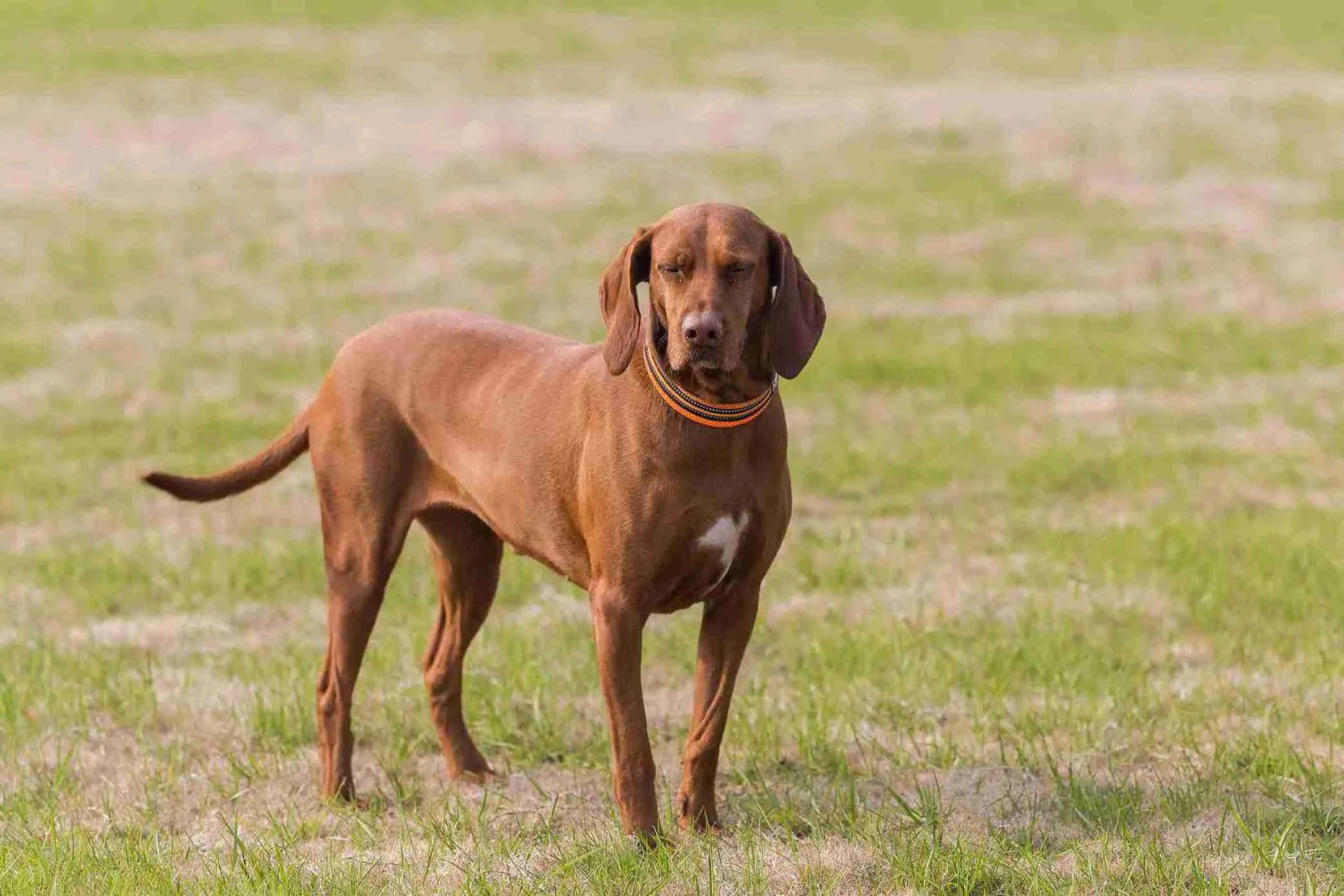German Shorthaired Pointer
America’s Energetic Hunting Companion
1. Introduction to the Breed
The German Shorthaired Pointer (GSP), holding steady at #10 in the 2024 American Kennel Club (AKC) rankings, is an energetic and athletic breed cherished for its versatility and enthusiasm. Known as a premier gundog, GSPs excel in hunting, dog sports, and as active family companions. Their sleek build, boundless energy, and keen intelligence make them ideal for owners with an active lifestyle, thriving in environments where they can run, explore, and engage their sharp senses in rural or suburban settings.
2. History of the Breed
Developed in Germany in the 19th century, German Shorthaired Pointers were bred to be all-purpose hunting dogs, capable of pointing, retrieving, and tracking game on land and in water. By crossing German Bird Dogs with English Pointers and other breeds, breeders like Prince Albrecht zu Solms-Braunfels created a versatile hunter with stamina and grace. Recognized by the AKC in 1930, GSPs gained U.S. popularity for their hunting prowess and adaptability, appearing in field trials and as loyal companions known for their work ethic and charm.
3. Physical Characteristics
- Typical Size and Weight: GSPs are medium-to-large dogs, standing 21–25 inches tall at the shoulder. Males weigh 55–70 pounds, while females range from 45–60 pounds, with a lean, athletic build.
- Coat and Color: Their short, dense coat is water-repellent, typically solid liver or liver-and-white with ticking, roan, or patched patterns. The coat is low-maintenance but sheds moderately year-round.
- Distinctive Features: GSPs have a streamlined body, deep chest, and elegant head with expressive, almond-shaped eyes. Their docked tail (where legal) and webbed feet enhance their agility in water and on land.
4. Personality Traits
German Shorthaired Pointers are intelligent, energetic, and affectionate, with a zest for life that makes them joyful companions. They form strong bonds with families, enjoying interaction with children and other dogs when socialized. Their high prey drive and curiosity can lead to chasing small animals, so training is essential. GSPs are eager to please but require mental and physical stimulation to prevent restlessness, making them best suited for active owners who can match their enthusiasm and provide purpose-driven activities.
5. Care Requirements
- Exercise Needs: GSPs demand 90–120 minutes of daily exercise, including running, hiking, swimming, or field work. Activities like fetch, agility, or hunting simulations keep them physically and mentally satisfied, as they thrive on challenging tasks.
- Grooming Needs: Their coat needs weekly brushing with a hound glove to manage shedding. Regular ear cleaning prevents infections due to their floppy ears, and nail trimming and dental care maintain overall health. Baths every 6–8 weeks keep their coat sleek.
- Dietary Considerations: A high-protein diet supports their active lifestyle, with foods containing glucosamine for joint health. Portion control prevents obesity, as GSPs love to eat. Owners should ensure fresh water is available, especially after intense exercise, to support their high energy output.
6. Health and Lifespan
German Shorthaired Pointers have an average lifespan of 10–12 years. Common health issues include hip dysplasia, bloat (gastric dilatation-volvulus), and hypothyroidism. Some may develop eye conditions like progressive retinal atrophy or skin allergies. Regular vet checkups, screenings for genetic conditions, and a balanced lifestyle reduce risks. Owners should monitor for signs of bloat after meals and avoid overexertion in extreme heat to protect their active nature.
7. Training and Socialization
GSPs are highly trainable due to their intelligence and eagerness to please, excelling in obedience, field training, and dog sports. Positive reinforcement with treats, praise, or play keeps them engaged, as they respond poorly to harsh methods. Early socialization is crucial to temper their prey drive and ensure comfort with strangers, children, and other animals. Teaching a strong “recall” command is vital, as their hunting instincts may lead them to wander. Consistent training and structured activities prevent boredom-related behaviors like chewing or digging.
8. Ideal Home Environment
German Shorthaired Pointers thrive in homes with large, secure yards or access to open spaces, such as rural or suburban properties near trails or fields. They’re best suited for active families or individuals who enjoy outdoor pursuits like hiking, running, or hunting. Apartments can work if exercise needs are met, but their high energy makes spacious environments ideal. Owners should provide a stimulating, secure setting to prevent escapes driven by their curious, scent-focused nature.
9. What’s the Best Toy for My German Shorthaired Pointer?
GSPs love toys that match their high energy and hunting instincts, providing physical and mental stimulation. Durable fetch toys are perfect for 20–30 minute sessions of chasing and retrieving, satisfying their need for intense play. Interactive puzzle toys engage their problem-solving skills, keeping them occupied indoors for 15–20 minutes. Rope toys support tug-of-war games that channel their strength and energy. Scent-based toys tap into their tracking abilities, offering fun nose work. Avoid flimsy toys, as GSPs can destroy them quickly, posing a choking risk. Rotate toys regularly and pair with outdoor activities to keep them engaged.
10. Adoption and Breeder Tips
Choose breeders affiliated with the German Shorthaired Pointer Club of America, ensuring health clearances for hips, elbows, eyes, and heart conditions. Visit the breeder to assess puppy health, meet parents for temperament insights, and confirm ethical practices, including early socialization and clean facilities. Rescues like GSP-specific organizations offer adoptable dogs, often with known histories. Avoid puppy mills, as GSPs are prone to health issues if poorly bred. Ask about genetic testing, field or companion lineage, and socialization practices to ensure a healthy, well-adjusted dog suited to your lifestyle.
